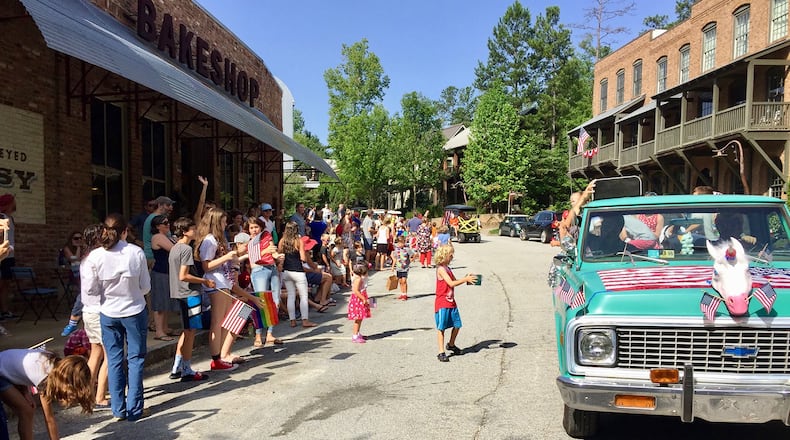The Development Authority of Fulton County on Tuesday gave an initial approval to an $11 million property tax break for an expansion of the luxury community Serenbe, including a pair of hotels and a “wellness” resort with a rental community aimed at helping people age in place.
Serenbe developer Steve Nygren unveiled a proposed $298 million expansion that would include a hotel with 80 guest rooms and 28 villas, along with a second resort hotel, restaurants, retail, and a “wellness campus” with “service-based housing” and medical facilities.
One of the hotels, he said, would have a top global brand, but he declined to name it. The complex will also include meeting space and a ballroom to help Serenbe accommodate more corporate events.
Nygren said the project will help create some 500 jobs within in the community in the southern Fulton County city of Chattahoochee Hills.
Serenbe is an environmentally friendly community known for farm-to-table dining, art, posh weddings, boutiques, and its organic farm. It’s a popular place for weekend getaways and corporate retreats in the southern tip of Fulton County.
Nygren, a famed Atlanta restaurateur and hospitality guru, has been developing the pastoral Serenbe community for more than two decades. But this latest phase would be the densest development there yet.
Southern Fulton is generally less affluent than areas north of I-20, though Chattahoochee Hills and Serenbe themselves are home to a wealthier population. For years, Nygren said he has had to work hard to convince lenders to support the community because banks had few comparable projects in the area to gauge the market.
“This will spur future commercial development,” Nygren said. “It will give us a comparable for south Fulton and what can happen.”
He said he is seeking tax incentives to help bridge a financial gap between the equity he and his partners have raised and funds banks are willing to lend.
When asked if he believes the project will come to fruition with the board’s support, Nygren said: “We feel very good that it will.”
Over the years, DAFC has taken fire for tax breaks granted in hot neighborhoods that critics say were unnecessary. A 2021 Atlanta Journal-Constitution investigation found DAFC provided preliminary or final approval for more than $328 million in tax breaks in a 3-year period, largely in fast-growing areas like the Beltline or Midtown with few public benefits.
“This project is important just in terms of what it represents for the broader south Fulton community,” DAFC Executive Director Sarah-Elizabeth Langford said.
Nygren said this project will help create a model for aging-in-place. And the development team has committed to buying a fire engine for the city.
In other action, the DAFC board granted final approval to a nearly $5.7 million tax break for a mixed-use development at Boulevard NE and Highland Avenue in Atlanta that will include 284 apartments, including 43 units at rents affordable to households making 80% of the area median income.
About the Author
Keep Reading
The Latest
Featured



